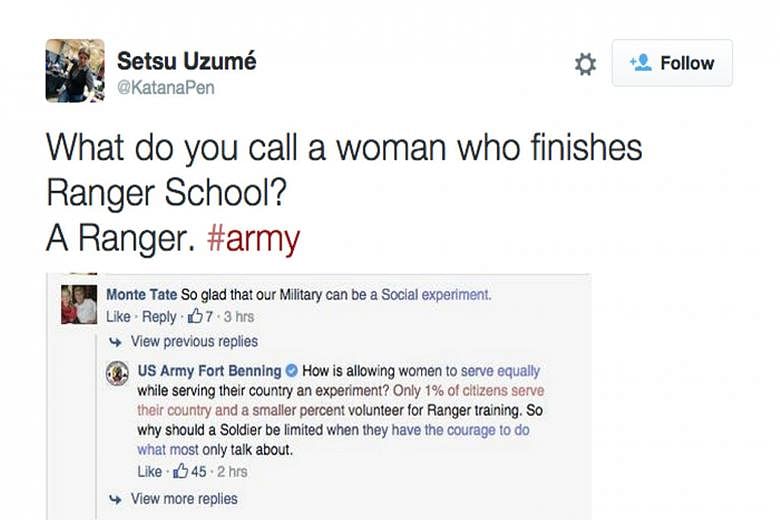Are armchair detectives effective? The answer varies greatly from case to case, but this past week demonstrates how a situation worsens when social media sleuths jump the proverbial gun.
Many netizens trawled the Web after the tragic bombing of the popular Erawan Shrine in Bangkok on Monday, searching for clues on the bomber's identity.
Unluckily enough, a 26-year-old private English tutor was singled out because of his resemblance to images released by the Thai police.
A composite picture of Sunny Burn's Instagram post, which he had posted to let his friend and relatives know he was safe, and the CCTV images made its rounds.
In a matter of hours, his home address was leaked and he began receiving death threats.
- NOTABLE TRENDS
-
#BANGKOKBLAST
The bomb blast on Monday was one of the top trends this week. Netizens shared photos, videos and stories of what had happened.
#R170
Indonesia celebrated its Independence Day on Aug 17, with many good wishes streaming in from all over the globe.
TIN PEI LING
The People's Action Party's youngest MP Tin Pei Ling, who is defending MacPherson in the coming general election, quoted pop star Taylor Swift in her press conference. "I would encourage young people to shake it off and not give up."
Eventually, he turned himself in to the police to clear his name.
This is not the first time netizens have falsely accused a person in the heat of the moment.
In the aftermath of the Boston bombing in 2013, social media sleuths wrongly pointed out two suspects. Teenager Salah Barhoun, who had gone to watch the race, was shocked to see his face being circulated for "looking suspicious".
He turned himself in to the authorities, as much to clear his name as it was for his own safety.
Reddit users also zeroed in on a missing man - 22-year-old Sunil Tripathi - as one of the bombers.
A Facebook page put up by Tripathi's concerned family members hoping to find him was taken down after netizens flooded the page with nasty comments.
Unfortunately, as it turned out, Tripathi was already dead. His body was recovered on April 23, a week after that attack.
But that's not to say social media sleuthing doesn't have its uses.
Every week, law enforcement officers all over the world solve crimes with the help of observant members of the public and bumbling crooks who feel the need to document their crimes.
Locally, Singapore's police force made its first "Facebook arrest" of a loan shark as early as 2011, and a fair number since then.
But perhaps in this era of CCTVs, dashboard cameras and prolific photographs of ourselves, it is prudent to double-check facts and report them rather than breaking out the pitchforks.
FOOD POLITICS?
Social media, it seems, is fast becoming a battleground to capture the attention of Internet-savvy voters in the upcoming general election.
Things heated up recently with Workers' Party chairman Sylvia Lim posting a picture of her eating an oyster omelette in a hawker centre with the caption: "The taste of Fengshan - heavenly!". This drew the ire of Deputy Prime Minister Teo Chee Hean, who made reference to the financial issues dogging Aljunied GRC's opposition-run town council.
Shortly after, Joo Chiat MP Charles Chong also joined the fray, saying that the "oyster omelette tastes better in Aljunied", although netizens were quick to point out an error in his original post where he labelled the dish wrongly.
National Solidarity Party (NSP) council member Steve Chia also announced his run around the MacPherson estate on Friday, with a caption saying he saw "many areas that needs (sic) improvement". His Facebook post came two days after the NSP made a surprise U-turn to contest MacPherson SMC.
But without a doubt, the biggest heavyweight on social media locally is Prime Minister Lee Hsien Loong, who currently boasts the largest following among all the politicians. He has more than 830,000 fans on Facebook and 125,000 followers in Instagram.
A RANGER IS A RANGER IS A RANGER
What do you call a girl who finishes Ranger school? A ranger, tweets user 'Setzu Uzume'.
On Friday, two female lieutenants became the first women to graduate from the elite US Army's Rangers programme.
Among other feats, the 62-day training course requires candidates to run and swim for many miles in combat uniform and complete a 25km route march while carrying a 30kg pack.
When word about this historic accomplishment got around, misogynistic trolls descended on the Facebook page of US Army Fort Benning, where the rangers were graduating.
Among the many Twitter users who fought back against the sexism, the most impressive retorts came from the official page.
"Was that a girl?" one user asked. "That was a Soldier," it replied.
In other US military-related news, its air force has put out a new slogan warning service members about the dangers of sharing too much information on social media.
The slogan: "Loose lips sink ships" has been replaced with "Loose tweets destroy fleets".
#SG50 DOLPHINS
If you had monitored your Twitter feed during Singapore's National Day celebrations on Aug 9, you might have noticed some posts that were not quite like the others.
Animal activists had hijacked #SG50 on the microblogging platform to further their cause, which in this case was against dolphin captivity in Resorts World Sentosa. Such hijacking is popular among groups or brands who want to get their message out, no matter the backlash.
"Do Singaporeans care that their country is a major example of animal cruelty? Let the dolphins go home," read one of the messages.
Said a report by social media monitoring company Digimind: "As was the case for numerous brands this year, SG50 was an opportunity that animal rights groups did not want to miss."




